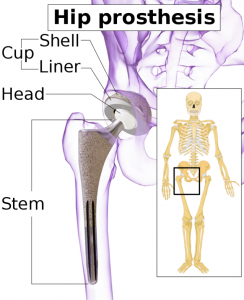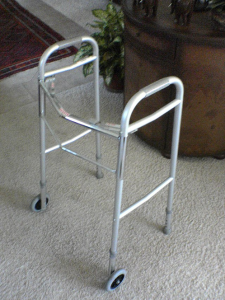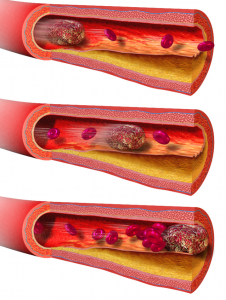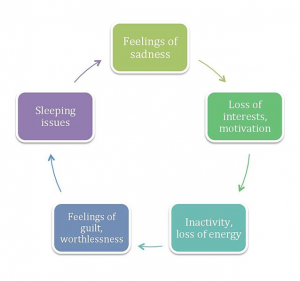Mary’s Health: Hip Fracture
Symptoms:
- Inability to get up from a fall or to walk
- Severe pain in hip or groin
- Inability to weight bear on the affected side
- Bruising & swelling in & around hip area
- Shorter leg on the affected side
- Outward rotation of the leg on the affected side
Surgical Repair
The type of repair depends on where & how severe the fracture is, displaced bone, age, & underlying health conditions.
Options include:
- Internal repair using screws
- Total hip replacement
- Partial hip replacement
Rehabilitation
- Out of bed and moving on the 1st day post-op
- Physical therapy will initially focus on ROM and strengthening exercises
- Home exercise program and follow-up PT appointments
- Assistive devices required: walker, cane, safety bars in bathtub, elevated toilet seat
Precautions to Prevent a Dislocation
Posterior Approach:
- Do not bend at the waist past 90 degrees
- Do not cross your legs
- Do not internally rotate the surgical leg
Anterior Approach:
- Do not step backwards with the surgical leg
- Do not externally rotate the surgical leg
Complications
- Can reduce independence
- About half the people who have a hip fracture do not regain the ability to live independently
Immobility may lead to:
- Blood clots in the legs or lungs
- Bedsores
- Urinary tract infections
- Pneumonia
- Further loss of muscle mass
- Increase risk of falls & injury
- Death
Post-Operative Depression
It can be challenging to differentiate between typical post-op recovery and depression symptoms.
Depression is a psychological illness that can lead to impaired decision-making, difficulty with day-to-day life, and may lead to physical illness.
Signs & Symptoms of Depression:
- Eating significantly more or less than is normal
- Sleeping significantly more or less than is normal
- Fatigue
- Irritability
- Difficulty making decisions, even minor ones
- Loss of interest in activities
- Feelings of hopelessness and despair
- Feelings of anxiety, stress, agitation or restlessness
- Thoughts of self-harm
- Thoughts of harming others





